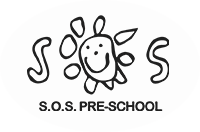Puzzles
Young children and adults love to play with puzzles. Puzzles challenge our thinking and help to exercise our minds. Puzzles are also an important learning activity for young children as they provide many skills and opportunities across developmental areas.
Each day at free play time, Children have the opportunity to engage with puzzles either at the table or larger floor puzzles. Group teachers also offer puzzles as an activity to participate in if children have finished group activities and need extension to remain with the group.
Puzzles come in a whole range of concepts and themes. These can include diversity of children and families; places to visit such as the beach, the park, the shops; food; transport; people in our community; indigenous stories and art; the alphabet; numbers, shape and colour; seasons. They can cover a wide range of a child’s areas of interest such as dinosaurs and cooking to insects and trains which helps to connect children to our diverse world.
Participating in puzzles facilitates the development of a child’s visual spatial awareness and can reinforce a child’s understanding of concepts and themes.
All children learn differently and puzzles may be your child’s medium for grasping an understanding or extending their interest in a particular area.
- Completing the simplest of puzzles sets a single goal to achieve for children. Children must think and develop strategies on how to achieve this. This process involves problem solving, reasoning skills and developing solutions which can later be transferred into their later life.
- The children use cause and effect, trial and error, along with existing knowledge (edges are straight etc.) to complete a puzzle.
- Puzzles are a great play activity to enhance and promote cooperative play. As children work together to complete a puzzle, they will communicate with each other about where a piece should go and why, take turns and share, talk about the concept or theme of the puzzle and support each other when handling frustration.
- Puzzles are a way for children to develop their fine motor skills. When engaged in playing with puzzles, children are required to pick up, pinch and grasp pieces (some with small knobs, pegs or chunky pieces) and move them around, manipulating them into slots, sorting them and fitting them into the correct places.
- By allowing children to increase the complexity of puzzles as their skills develop, they can investigate and explore properties of puzzles, and they enable children to show delight at their success when the puzzle is completed.
EYLF Outcomes
- Children are involved learners
- Children have a strong sense of identity
- Children engage in verbal and non-verbal interactions
- Demonstrate and develop a strong sense of identity
- Children are connected with their world
